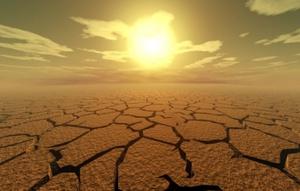DroughtTexas drought – no end in sight
Residents across Texas are continuing to struggle with one of the state’s worst natural disasters in history; far from a singular event, Texas is experiencing a crippling drought with record low rainfall for the 2011

The Texas drought shows no sign of abating // Source: losyziemi.pl
Residents across Texas are continuing to struggle with one of the state’s worst natural disasters in history. Far from a singular event, Texas is experiencing a crippling drought with record low rainfall for the 2011.
In the last eleven months, Texas has received 46 percent less rain than its usual twenty-six inches. Exacerbating the drought was a crippling heat wave that saw temperatures soar to record highs not seen since 1934, the year of Oklahoma’s Dust Bowl.
So far the drought shows little sign of letting up with roughly 70 percent of the state experiencing “exceptional drought.” Meteorologists predict that the lack of rain could continue through the summer and possibly beyond.
As a result of the extreme weather, Texas’ agricultural and ranching sectors have been hit hard. Last year farmers lost an estimated $5.3 billion, while the ranching industry saw its largest one-year decline in cattle, losing more than 600,000. With dried up ponds, no grazing land, or money to buy feed, many farmers and ranchers sold their livestock to the slaughterhouse.
Meanwhile, last year, Texas’ $6 billion cotton industry produced 60 to 75 percent less bales than the previous year.
The drought has also resulted in a series of massive conflagrations that raged across the state destroying thousands of acres of trees.
In addition, many towns have been forced to impose strict water use regulations as their aquifers begin to run low. Other cities like Fort Worth and Dallas have begun making changes to their urban planning by building more parks, roadway medians, and other public landscaping projects that use native plants that do not require a lot of irrigation. Residents have also been encouraged to avoid throwing cigarettes on the ground and outdoor fires.
With no end in sight for the drought, the state will have to reconsider how they use their water and where they get it.
